ADHD stands for Attention-Deficit/Hyperactivity Disorder.
It is a neurodevelopmental disorder that primarily affects an individual's ability to regulate their attention, impulses, and activity levels.

Attention- Deficit/Hyperactivity Disorder
Absent-minded
Impulsiveness
Restlessness
Difficulty paying attention
Disorganized
Impatience
Distracted easily


Visiting Places of Significance
Primary Research
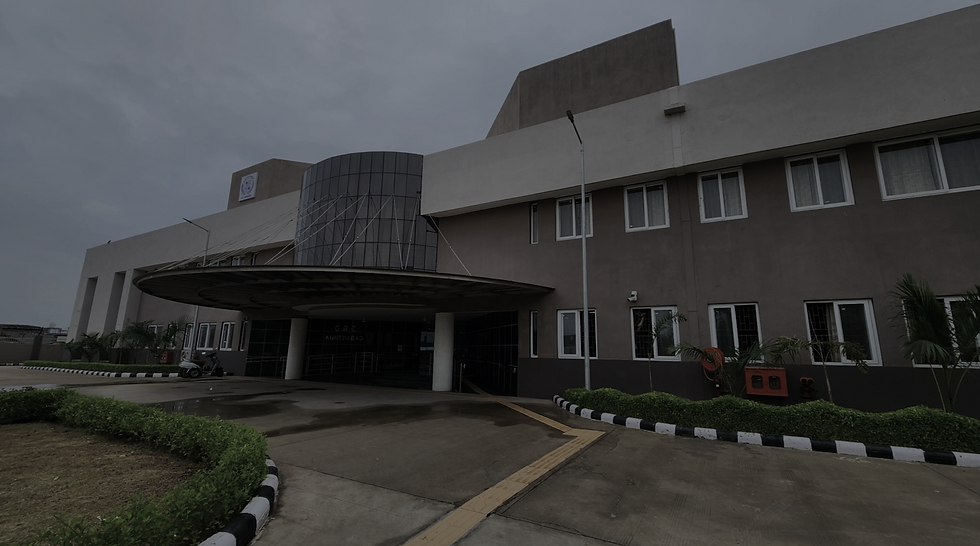
Composite Regional Centre
for Skill Development Rehabilitation and Empowerment of persons with Disabilities
Speaking to stakeholders and understanding the modules incorporated by the facility to help children with ADHD focus and learn. We also expanded our scope based on the inferences gathered in the different therapy rooms.



Special Education
Occupational Therapy
Speech Therapy
Facilities Offered
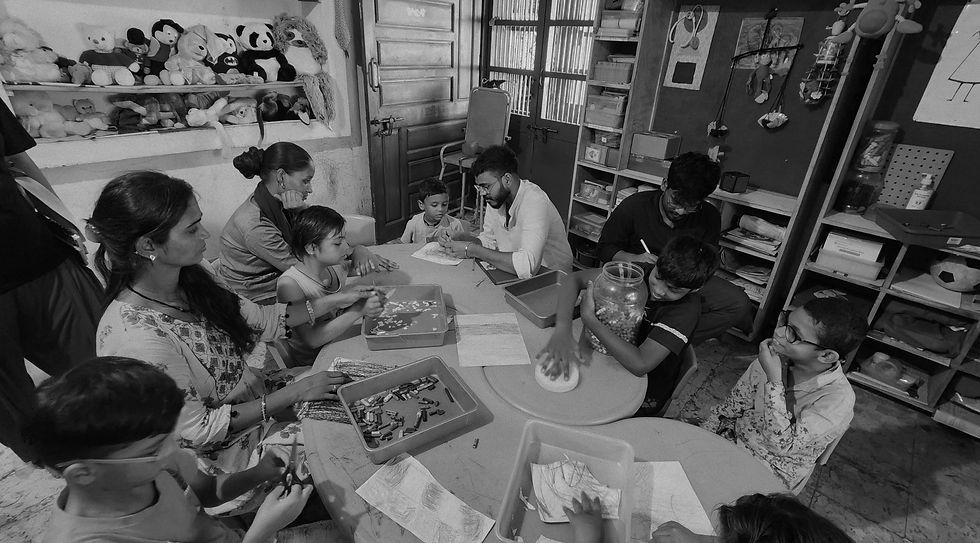
Prabhat Foundation
Prabhat Foundation works to bridge the gap between mainstream society and those with special needs. Their mission is to build the capacities of people with special needs to live with dignity and hope as productive and confident citizens. We were able to interact with teachers and differently abled children in the foundation. This place gave us a lot of insights for us to narrow down further into our opportunity area.

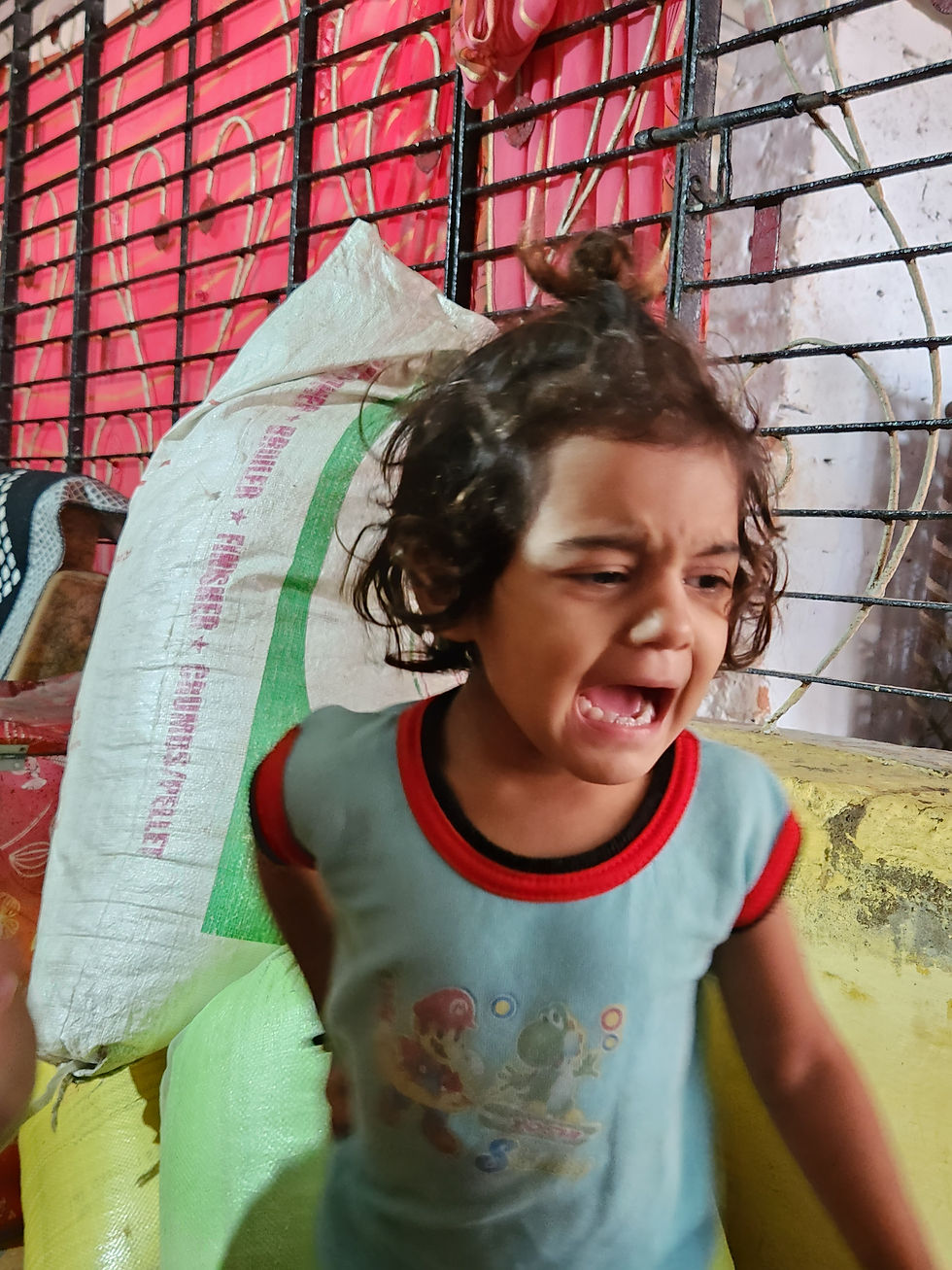
Home Visits
meeting the families of children with ADHD and other Special Needs
Name: Varun
Age: 9
Quite hyper and has a tendency to harm self and others when provoked. Used to go to Prabhat before lockdown, had improvement but as he discontinued, the progress became close to zero.
Doesn’t play with toys.
Name: Roohi
Age: 3
Used to be a normal child before epilepsy, likes to go outside and roam around the house, usually doesn’t like sitting in one place, constantly moving. Cries if wishes are not met. Doesn’t eat proper meals yet and puts everything in her mouth. Doesn’t play with toys.


The Identified Issue:
Transitioning from one activity to another
Selected Area of Intervention
Transition Periods
+ Therapy
+ Play
The transition periods between different therapies are abrupt & force the child to snap out of the learning phase as soon as time is over. A playful approach can be implemented between therapies (eg hallways, activities initiated of the end, continued later etc.) to make the child more comfortable in the new space.
Brief: Making transition periods for children with ADHD smooth and fun.
_edited.jpg)
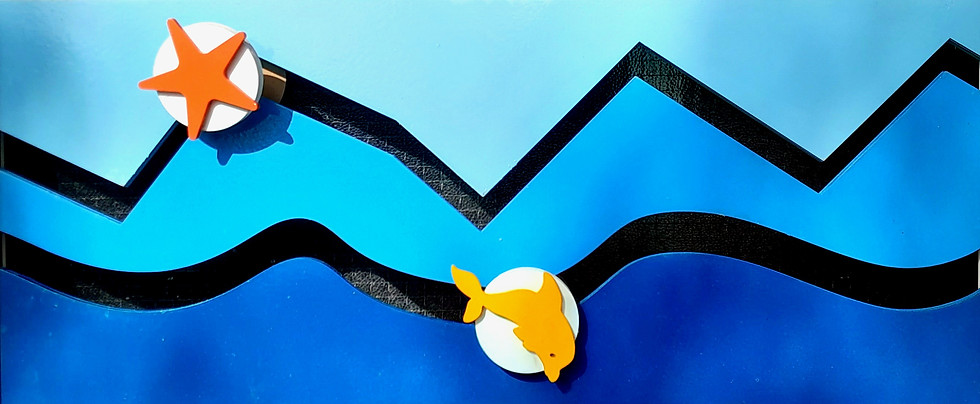
Waves of Ease
The intent behind Sea-rinity is to stir a feeling of calm and relaxation within the children. Adding interactive elements in hallways while they are transitioning from one therapy room to another can help in aiding and making the process smoother. The name comes from the word Serenity and Sea, as the child surfs the waves of our sea, we hope to ease their discomfort with a playful and simple distraction.
Strategies to
make
transitions smoother
-
Create a specific routine that immediately follows a certain favorite activity.
-
Make a visual schedule, one that clearly shows what's coming next.
-
Give your child a warning for when the activity is going to end.
-
Give your child something to do during the transition that clearly indicates a move to something new


Strategies to
make
transitions smoother

Creating multiple floor and wall activities in the hallway for kids to indulge so that he/ she dont feel disconnected and doesn’t break their flow of things they like doing. This might help in a smooth transition between different therapy session.

Fidget-Friendly Furniture
Incorporate furniture that allows for subtle movement and fidgeting, such as wobble stools or chairs with flexible seating options.

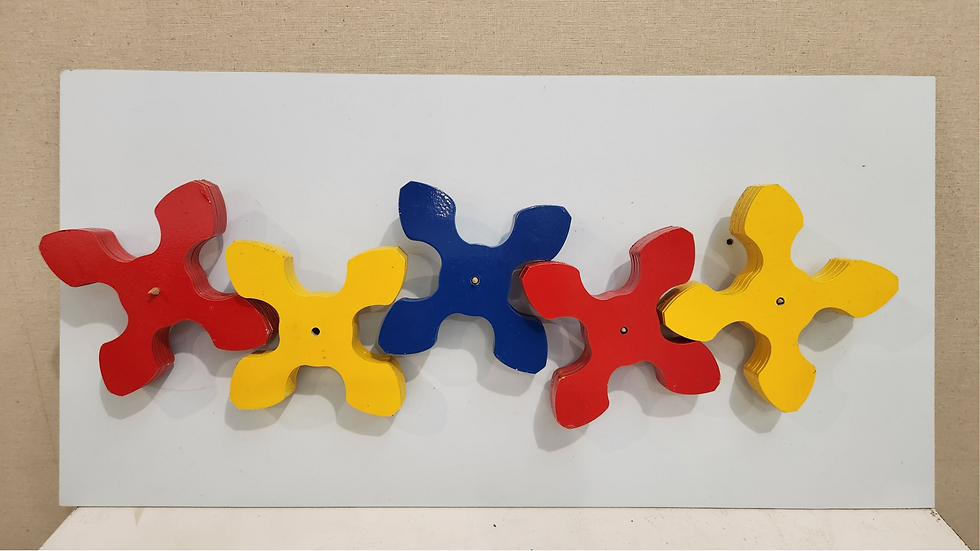

Install interactive elements on wall that can serve as dynamic tools for learning and engaging in creative activities.
Interactive Walls


In the world of design, when we embrace and design for special needs, we create a more inclusive and beautiful world for all
Sameksha Rohatgi and Shreya Gaikwad
Guide: Gayatri Menon
